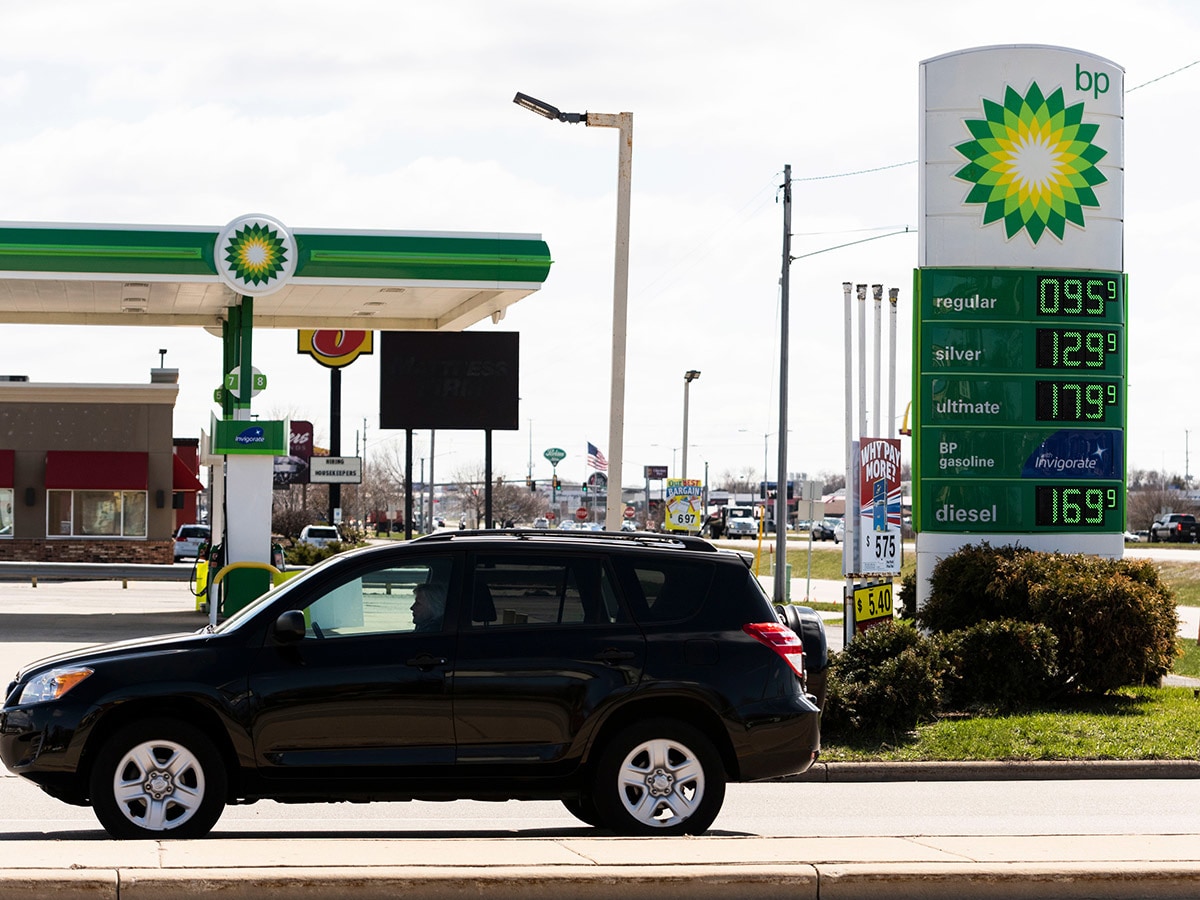
The BP share price, along with Shell's, has been among the best performers year-to-date on the FTSE 100, which is welcome news for shareholders who have had to ride out a turbulent couple of years, as well as billions of dollars in losses, which sent BP's share price back to levels last seen in 1995.
Better-than-expected Q4 profit buoys BP share price
BP's share price is up 1.7% in early trading this morning, after today’s Q4 numbers have seen underlying replacement-cost profit come in at $4.1bn, above expectations of $3.87bn, with the dividend coming in at 5.46c a share. BP also announced a further $1.5bn in buybacks, taking the total for the year to $4.15bn, in what will be welcome news for shareholders.
Unlike in Q3, when profits attributed to shareholders were wiped out by $6.1bn of hedging losses, impairments on this measure in Q4 were lower to the tune of $0.9bn, reducing profits to $2.3bn, and pushing full-year profits attributable to shareholders up to $7.57bn.
On the plus side, full-year operating cashflow has improved immensely from a year ago, up from $12.16bn in 2020 to $23.6bn, with another improvement in cashflow to $6.1bn in Q4. Over the last 12 months, BP has received $7.6bn of divestments with another $2.3bn during Q4, and expects to receive another $2-3bn in 2022.
BP emerges from turbulent times
It’s important not to understate how bad 2020 was for the oil and gas industry, as demand collapsed and oil companies cut production as storage and refinery capacity ran out. Due to the 2020 collapse in oil and gas prices, we have seen the big oil companies absorb a combined $76bn of losses between them. Around $70bn of that amount was as a result of writedowns and impairments on unviable or stranded assets, with BP alone posting a $20.3bn loss in 2020, as it sought to cut its debt levels and right-size its business model for the challenges in diversifying away from its legacy business of fossil fuels.
So far in the last 12 months, BP has cut its net debt from $50bn at the end of 2020 to $30.6bn, through a combination of disposals, job losses and cost cutting, helping to push its breakeven level on crude prices below $40 a barrel. In Q3, the oil company was able to improve its cashflow to $5.9bn from $5.4bn in Q2, however while underlying profits improved to $3.3bn, the number attributed to shareholders saw the business slide to a net loss of $2.54bn. This loss was down to the value of accounting effects of hedges on forward gas prices which fell underwater to the tune of $6.1bn, and which are expected to partially unwind as prices fall back.
Transition to renewable energy
Full-year capex in 2021 was fairly modest at $12bn, with the company saying it expects to spend between $14bn and $15bn in 2022, which seems a little on the low side, although it's perhaps not too surprising given that returns on renewables tend to be lower, and investment in transition areas like natural gas tends to be viewed as controversial. The wider question will be how much of that capex spending goes towards renewables.
Last year BP laid out a 10-year plan to reduce its oil and gas production by 40%, and boost spending on low carbon energy to $5bn a year, in order to try and meet its climate goals. This suggests that renewables still only make up around a third of its total capex, although it says it expects energy transition spending to increase to around 40% by 2025. This still seems low if BP is to meet its target of generating 50GW of renewable energy by 2030.
With oil and gas demand unlikely to decrease significantly in the short- to medium-term, the lack of investment in natural gas and other transition sources of energy is likely to keep prices high, thus exacerbating the current problem for consumers, and business in general, and it was interesting to note CEO Bernard Looney's comment that we need more natural gas in the short term, and not less. If he really believes that then he should set about delivering it and make the case to governments, as well as the green lobby.
Of course, as BP announces a welcome return to profit, the good news will probably get lost in political noise from economically-illiterate populist nonsense, which fails to understand that profits also get taxed and are therefore good news for taxpayers, as well as getting reinvested into new projects that can deliver longer-term benefits. This should be welcomed at a time of high energy prices, which in some part have been caused by government green policies that have focused on cutting emissions to the detriment of finding alternative sources of power.
There is certainly a case for criticising the amount of money these businesses set aside for investors and shareholders relative to investment in renewables, however rather than calling for a populist windfall tax, which would also deter investment, perhaps it would be better for governments to make investment in renewable energy more attractive by way of tax breaks in the areas of blue and green hydrogen. BP has made a start in this area with its plans for a new green hydrogen production facility in the UK, as well as forming a strategic partnership with Oman to deliver a green hydrogen, wind and solar renewables project by 2030, but it needs to go further.
Today’s numbers are welcome news for the BP share price and shareholders, after the horror show of 2020, and politics aside, there is still concern that BP isn’t spending enough on renewables to meet its longer-term climate goals. BP’s biggest problem in the longer term, is that all its profits come from its oil and gas operation and productions businesses, which is great news while prices remain high but may not be so sustainable beyond 2030.
Disclaimer: CMC Markets is an execution-only service provider. The material (whether or not it states any opinions) is for general information purposes only, and does not take into account your personal circumstances or objectives. Nothing in this material is (or should be considered to be) financial, investment or other advice on which reliance should be placed. No opinion given in the material constitutes a recommendation by CMC Markets or the author that any particular investment, security, transaction or investment strategy is suitable for any specific person. The material has not been prepared in accordance with legal requirements designed to promote the independence of investment research. Although we are not specifically prevented from dealing before providing this material, we do not seek to take advantage of the material prior to its dissemination.




















